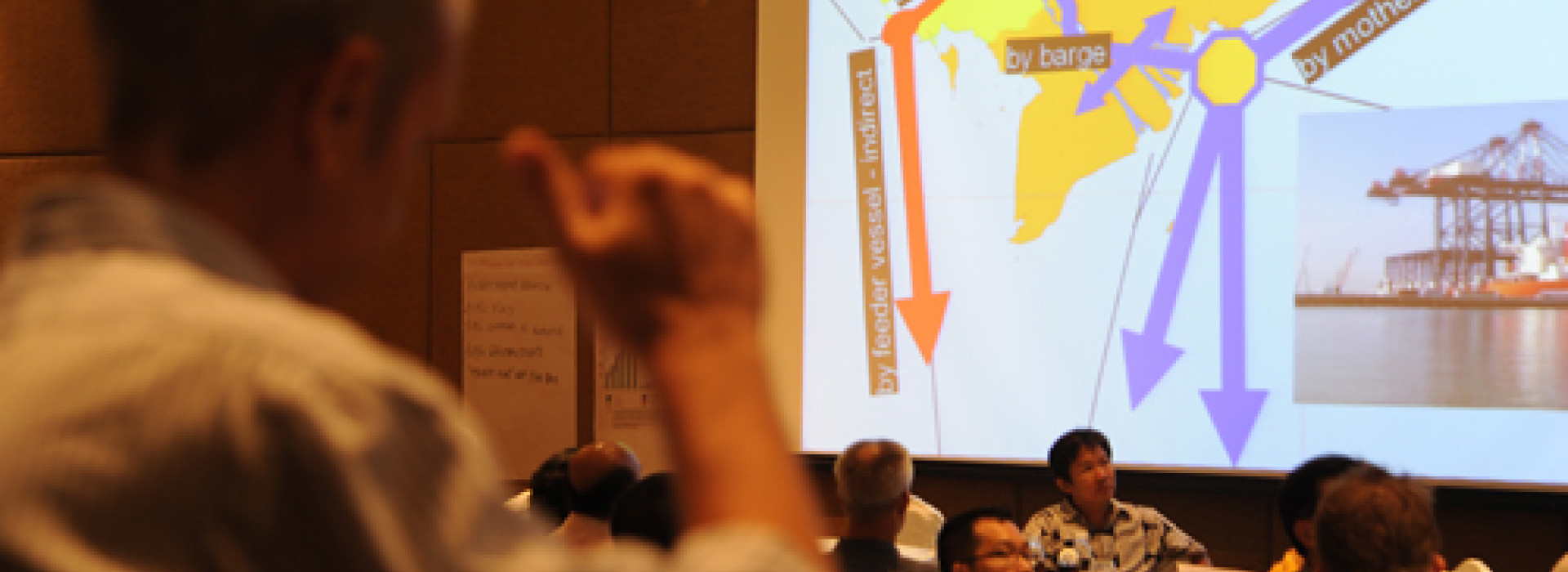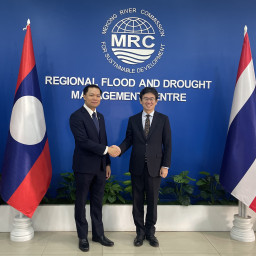Balancing food, water and energy demands top agenda at ‘Mekong2Rio’ global forum
All continents represented in debate on growing needs in the three sectors and seek solutions on transboundary river management
PHUKET, Thailand, April 30, 2012—About 300 river managers, leaders and other stakeholders from around the world will discuss ways transboundary rivers can best meet growing food, water and energy needs while minimizing negative consequences at a three-day international conference starting tomorrow.
Participants from 14 river basin organisations throughout the world as well as two regional intergovernmental bodies, water and environment ministers, government officials, policy makers, development agencies, non-governmental organisations, the private sector and other stakeholders will share their lessons learned and seek solutions in the governance and use of shared water resources.
Convened by the Mekong River Commission (MRC), the Mekong2Rio conference will principally look into current trends of water uses to meet food, energy and water needs and how they are connected to and affect each other.
“Rapid development in the Mekong region has put increasing pressure on water resources, especially in terms of food and energy production,” said Hans Guttman, Chief Executive Officer of the MRC.
“This conference will enable the region to learn from other basins, widening its perspectives and expertise in order to efficiently manage the Mekong resources. And we hope this forum will offer the same opportunities for the others,” said Mr. Guttman.
Set to be a platform for exchange of novel approaches and up-to-date technology, debate of current problems and discussion of new solutions, the conference will offer technical and dialogue sessions for a wide range of actors as well as a political dimension during plenary meetings of water and environment ministers from the MRC Member Countries—Cambodia, Lao PDR, Thailand and Viet Nam.
Exploring ways to strengthen institutional frameworks and governing structures needed for transboundary river basin organisations, the conference will draw expertise from managers of river basins throughout the world including: Asia’s Ganges, Indus, Yellow, Mekong and Aral Sea River Basins, Australia’s Murray-Darling, Europe’s Danube, Africa’s Niger, Nile and Congo and America’s Amazon, Columbia, Mississippi and Parana-LaPlata River Basins.
The two regional intergovernmental bodies represented at the conference are the Southern African Development Community–Protocol on Shared Watercourses, who oversee 13 transboundary river basins, and the United Nations Economic Commission for Europe, who promote pan-European economic integration.
The Mekong2Rio conference will send a message and add a water dimension to Rio+20, the United Nations Conference on Sustainable Development, to be held next month in Rio de Janeiro, Brazil, whose themes are a green economy in the context of sustainable development and poverty eradication and the institutional framework needed.
For more information and conference programme please go to http://www.mrcmekong.org/news-and-events/events/mekong2rio/
Note to editors:
The MRC is the intergovernmental body responsible for cooperation on the sustainable management of the Mekong Basin whose members include Cambodia, Lao PDR, Thailand and Viet Nam. In dealing with this challenge, the commission looks across all sectors including sustaining fisheries, identifying opportunities for agriculture, maintaining freedom of navigation, flood management and preserving important ecosystems.
Mekong2Rio is the first in a series of the MRC biennial conferences on transboundary river basin management. It will be held at Movenpick Resort & Spa, Karon Beach, Phuket.
The United Nations Conference on Environment and Development held in Rio de Janeiro, Brazil in 1992 was an historic milestone ensuring development is balanced with environmental and social concerns. The United Nations Conference on Sustainable Development or Rio+20 aims at assessing what has been achieved since then and which gaps need to be filled and what political commitments will be required.
-END-





